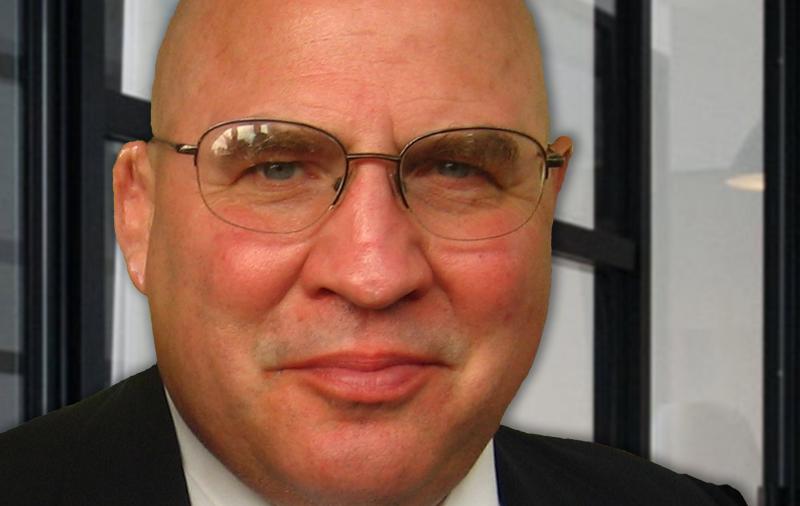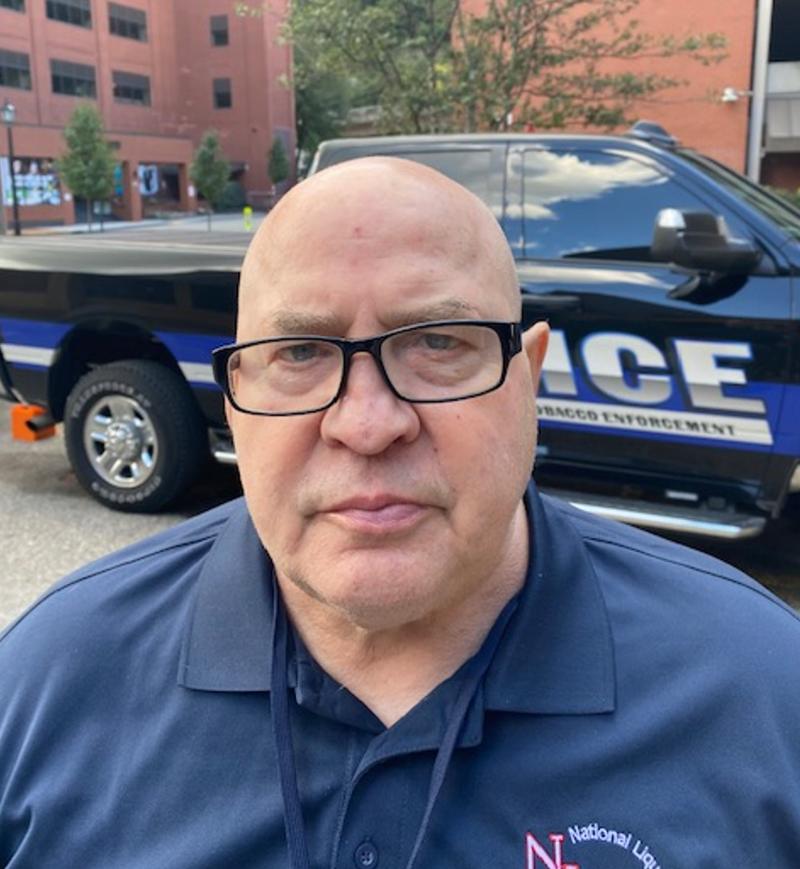Robert “Bob” Pomplun is the founder and president of Serving Alcohol, which offers online, responsible alcohol training for bars, restaurants, other on-premise establishments, and people in the hospitality industry.
Pomplun – who was a bartender for more 20 years and has three decades of experience in the hospitality industry – acts as an alcohol certification consultant, instructor, manager and coordinator.
Bar & Restaurant spoke with Pomplun about alcohol training, the most important considerations when it comes to serving alcohol, common mistakes, issues the industry isn’t talking about, and the importance of caring when it comes to responsibly serving customers.

Question: Hi, Bob. Thanks for your time. What led you to become an alcohol certification consultant and educator?
Answer: I started my training company with a background in the insurance industry. Jim Schafer, head of the University of Minnesota Department of Epidemiology, referred me. Jim had referred me to Jim Peters with RHI, the Responsible Hospitality Institute, and subsequently, I became a member of the Institute. For the last 35 years, I have been a member and am the longest-serving member to date with RHI.
Jim Peters trained me on how to save lives by utilizing techniques when selling alcohol and to care about the effects that alcohol has on our society. That’s what started my alcohol, security and preventative training for bartenders, servers, managers and owners of alcohol-serving establishments. Our goal and our mission, ultimately, are to save patrons’ lives by preventing either the improper or illegal sale of alcohol that can result in tragedy. A tragedy that can be avoided with the proper training.
Question: Your business, Serving Alcohol, offers numerous training courses and certification programs for bar and restaurant owners, bar managers, bartenders and staff serving alcohol. What can you tell us about those programs?
Answer: Most of our courses are knowledge of the service of alcohol for specific states in the U.S. Some states, as well as local communities, require anyone who sells and/or serves alcohol to be state certified. Those states will have specific needs as to the service of alcohol.
Every state has different regulations, rules and laws regarding the service and sale of alcohol. For the states that do not require training, they will still have their own set of requirements for the service of alcohol. Our individual state alcohol certification courses fulfill those needs and requirements.
We encourage all alcohol vendors to have house policies that are stricter than state laws as a condition of entry. House Rules of Entry help to establish staff control of patron's behaviors through employee's observations and interventions. These proactive and preventative programs are reviewed and approved by alcohol ABC agents and regulators in each state, where there is an oversight.
Question: You’ve mentioned in the past that alcohol certification is basically awareness and legal parameters for the service of alcohol physically, socially, psychologically and legally. Is that still a correct assessment?
Answer: Basic terms when discussing alcohol use and impairment are carefully worded, and there is a legal and lawful message. The word intoxicated has a legal meaning for law enforcement that if you serve alcohol to a patron in that condition, you may have broken the law. Knowledge of words, how they are used, and what they mean is very important in this context.
The intent is always to help, assist and protect patrons [or HAP]. They are using action words with the intent to help show intent to do help. Do not let other people put action words in your verbal response where it changes your intent to prevent harm. Your staff has to understand the meaning and intent of legal words. Knowledge is the key to solving problems, and the intent is the words used to describe the preventative movements and actions taken when assisting patrons in protecting themselves and others. Your intent should always be to help, assist and protect patrons.

Question: What’s the most important thing for bar and restaurant owners and operators to remember when it comes to serving alcohol?
Answer: The most important thing for bars and restaurants is to address the needs and intent of their patrons. The intent of service is to address the needs of the patrons but within the legal and regulatory framework that is in place. In essence, we are professional guardians that have a duty to care for our patrons by law. You have a legal duty to care for and control the customers’ wants and desires. You have a moral duty to control patrons’ wants when they want something they do not need or should not have.
Remember, problem drinkers always come to bartenders they trust. They bring generations of family patrons to patronize establishments and staff they trust to protect them. They come back because the staff cares. Caring creates safety which is a tremendous intangible attraction to providing stellar hospitality.
Question: Do you come across some bar and restaurant operators who do not take serving alcohol as seriously as they should? And what do you say to them?
Answer: Most midsize and large organizations require all staff members to be alcohol certified. They know to take responsible alcohol service seriously. Unfortunately, many independent bars and restaurants will not take the training seriously. They will inevitably be confronted with multiple issues they do not know how to handle properly. If these issues continue, many communities will file complaints against these establishments, and their liquor licenses may jeopardize.
You may come across some bar and restaurant operators who are not caring. This is usually reflected in their insurance being aware, and the resulting cost increases for liability insurance.
The longevity of any business is the ability to make good money vs. bad money. The ability to reduce risk resides with staff and their ability to care, not allowing patrons’ tips to corrupt your business or sound logic.
Over serving and over pouring are two things that can destroy your business. Promoting a safe environment encourages good money and will ultimately make that business be more successful.
Question: You’ve guided thousands of bartenders, servers, managers, owners and security staff across the nation. Have you noticed any common mistakes these professionals make when it comes to serving alcohol – or critical errors that are overlooked and not talked about by industry leaders?
Answer: Bottle service is the most profitable way to serve alcohol and may become dangerous. Your staff should never give patrons control to pour their own alcohol on your premises. Insurance companies may not be aware of the hidden dangers that may be created by this type of alcohol service. Staff training to control this alcohol service is very important. The staff observation in this area has to be continual and ongoing.
Aggressive security is when you have hired the wrong person. The intent of security is to ask for compliance with your house policies. Post a list to educate patrons of unwanted behaviors.
Possibly impaired people, when asked to leave the premises, may at times return with a weapon. If threatened, be aware of the need to call the police.
Do not let your staff solely depend on ID scanners. They may not detect if the ID is fake. If you use a scanner, follow up by comparing their ID to the person in question.
Beware if a patron leaves their drinks unattended. This is when another patron may add a drug to their drink. Rohypnol is a popular date drug. Have other staff employed on premise to pay attention to what is happening.
Doormen taking tips for allowing underage patrons and people with guns into the establishment is an overlooked issue. Employees in control of entry can make a lot of bad money.
Employees may be encouraged to drink during or after work hours. House policy should be enforced to prevent this from happening.
Security not controlling the outside area of the bar is also an issue. This is a police question to be answered.
Not cleaning up spilled drinks from a dance floor as quickly as possible is a common mistake. Training staff to clean up the mess – to stop it from becoming a dangerous mess – is a big deal. The most common lawsuit is a slip and fall.
Staff must be aware that carding is a way of controlling unwanted patron intent. Communication is the key for possible prevention. Older staff wisdom and knowledge will help teach younger staff to control possible risk. Staff who do not card patrons again during shift changes can be held accountable for not checking valid identification.
Another key mistake is staff not being aware of the use of incriminating legal words when interacting with patrons in the following scenarios: poly-impairment, lack of sleep, use of illegal drugs, use of legal drugs, the influence of cannabis, emotionally distraught, mental illness, psychological impairment and physiological impairment.
Everyone is carded at entry is the best policy in training patrons. Ensure your patrons are trained to comply with staff directions before they enter your premises. Patrons can train other friends on the carding standard of conduct.
Lack of police enforcement and lack of engagement with law enforcement means possible problems will occur outside your premises. You need police advice when dealing with these issues. Call the police immediately for dangerous situations beyond your control.
We should immediately respond to help our patrons. Lack of staff understanding of the power of words and the potential for liability is key.
Use of word and term “bouncer” is an overlooked topic. If you are employing “bouncers” vs. “stewards of care,” this may possibly lead to legal issues of force when intervening in patron problems.

Question: In states that do not require alcohol training, should a bar or restaurant operator still consider proper alcohol training for all its staff?
Answer: Every alcohol selling or serving business should take the educated service of alcohol seriously, not only for legal issues that might result but for the safety of the environment and community. This is above and beyond the fact that insurance liability can mandate serving staff has some formalized training to limit the cost of underwriting. And it goes beyond the state level; some counties and municipalities may have their own regulations that are not enforced at a state level. Any good training program will at least touch upon the differences and provide awareness that this can and may exist in many of the states, regardless that these very states don’t mandate training.
Question: What should bar and restaurant operators consider in terms of serving alcohol and hospitality?
Answer: Re-introducing the general public to how to conduct themselves in a public venue. COVID-19 led to many people drinking at home. This led to a patrons’ lack of inhibitions on the amount consumed, and they didn’t have to worry about getting home. When they go to a public establishment, there are a set of house rules that they have to follow that naturally don’t exist when they’re in their own home.
Training patrons on how to think ahead to be safe before they drink alcohol and have a plan for a safe way home is critical. The owners’ have a duty to control their premises, but insurance may not cover beyond the physical boundaries of their premises; observe, immediately communicate to staff and the police if needed and when possible problems occur, and don’t wait for a conflict to become a conflagration.
Patrons have to be nice to each other. Staff observations, when enforcing house policy, helps to eliminate unwanted patron behaviors. Safe space and caring control of the premise is the key to having safe patron social interaction. Safety sells itself.
Question: How does being compassionate and caring about the customer come into play here?
Answer: Empathy, respect, dignity and understanding are key components of being a good server. You don’t know what type of day your patron has had. Knowing a bit about their emotional condition helps to understand the intent behind their consumption of alcohol. Perhaps a family member is in the hospital, they just lost their job, or there was a death in the family. These scenarios occur daily, and people unfamiliar with bars will find themselves sitting on a stool, drinking or overdrinking for painful reasons. Being attuned to your customers' physical and mental well-being is not just good business practice; it’s the right thing to do. The duty to care is to care.
Question: Beyond training and certification, what advice or lessons should operators share with their staff about serving alcohol?
Answer: Define the staff actions of promoting the attitude of civility, respect and dignity for anyone who comes through your door. “Be nice” is the golden rule.
Question: Thanks for your time, Bob. Any final thoughts for bar and restaurant operators when it comes to serving alcohol?
Answer: What an enjoyable and fulfilling role they play in society! Many of the memorable moments in peoples’ lives are centered around their ability to socialize with their families and friends and to enjoy the good times, as well as the not-so-good. As long as managers and owners have an enlightened staff who care, interact and monitor their clients, then it can be such a rewarding experience. It goes to the basics – provide excellent, caring service, be knowledgeable and be polite. The rest will follow! Remember making safe money will help make a safe time.
To learn more about Serving Alcohol and its training and certification courses, visit ServingAlcohol.com.
Plan to Attend or Participate in
Bar & Restaurant Expo, March 27-29, 2023
To learn about the latest trends, issues and hot topics, and to experience and taste the best products within the bar, restaurant and hospitality industry, plan to attend Bar & Restaurant Expo, March 27-29, 2023 in Las Vegas. Visit BarandRestaurantExpo.com.
To book your sponsorship or exhibit space at Bar & Restaurant Expo, contact:
Veronica Gonnello
(for companies A to G)
e: [email protected]
p: 212-895-8244
Tim Schultz
(for companies H to Q)
e: [email protected]
p: (917) 258-8589
Fadi Alsayegh
(for companies R to Z)
e: [email protected]
p: 917-258-5174
Also, be sure to follow Bar & Restaurant on Facebook and Instagram for all the latest industry news and trends.
